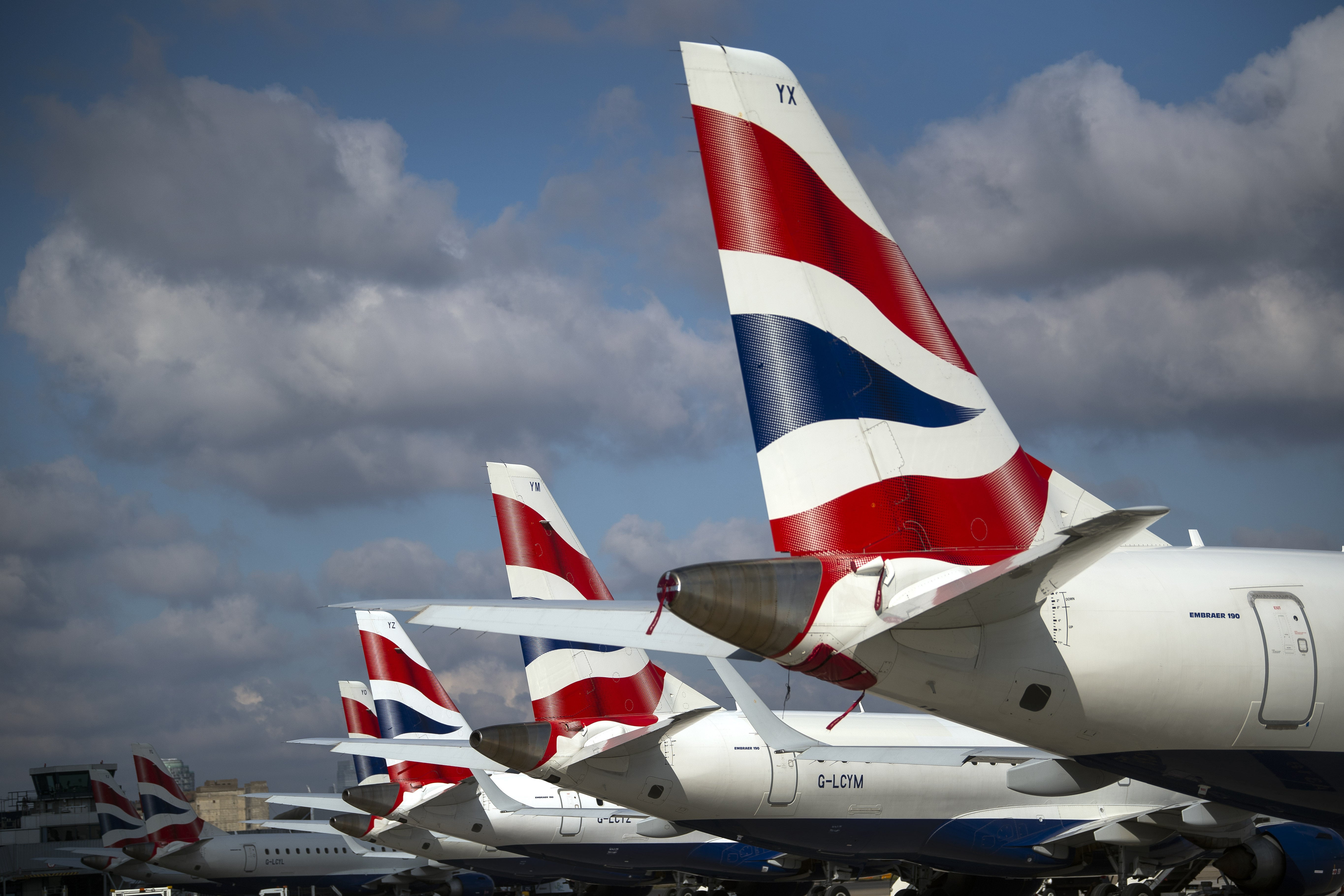Airlines forced to operate more flights to avoid losing airport slots
They must use their slots at least 70% of the time to keep them from March 27, Transport Secretary Grant Shapps announced.

Your support helps us to tell the story
From reproductive rights to climate change to Big Tech, The Independent is on the ground when the story is developing. Whether it's investigating the financials of Elon Musk's pro-Trump PAC or producing our latest documentary, 'The A Word', which shines a light on the American women fighting for reproductive rights, we know how important it is to parse out the facts from the messaging.
At such a critical moment in US history, we need reporters on the ground. Your donation allows us to keep sending journalists to speak to both sides of the story.
The Independent is trusted by Americans across the entire political spectrum. And unlike many other quality news outlets, we choose not to lock Americans out of our reporting and analysis with paywalls. We believe quality journalism should be available to everyone, paid for by those who can afford it.
Your support makes all the difference.Airlines will be forced to operate more flights this summer to avoid losing lucrative take-off and landing slots at the UK’s busiest airports.
They must use their slots at least 70% of the time to keep them from March 27, Transport Secretary Grant Shapps announced.
The Cabinet minister said the increase from the current level of 50% will “balance the needs” of various parts of the aviation industry as it recovers from the coronavirus pandemic.
A step back towards normal rules
The decision criticised by airlines but welcomed by Heathrow and Gatwick airports.
Airlines were traditionally required to use 80% of slots to retain the right to use them during the following year.
But this has been eased during the virus crisis to prevent airlines needing to operate so-called ghost flights with no passengers just to retain slots, which can be worth several millions of pounds each at Heathrow.
The alleviation of slot rules has benefitted some airlines such as British Airways and Virgin Atlantic, which have retained their rights at Gatwick despite cutting flights at the airport.
But it has frustrated the West Sussex airport and carriers wanting to expand, including Ryanair and Wizz Air.
Mr Shapps said: “Leaving the EU has allowed us to take back control of our airport slots rules, giving us greater flexibility to balance the needs of our magnificent aviation industry as it faces up to the pandemic.
“Today’s extension marks a step back towards normal rules, helping the sector to recover and grow as travel returns, while protecting it against any future uncertainty.”
Slot rules were suspended at UK airports in summer 2020 and winter 2020/21 after a decision by the European Union.
The Government extended the slot waiver into summer 2021, but reintroduced the rule at 50% for winter 2021/22.
Aviation minister Robert Courts said: “Since the onset of the pandemic we have provided relief from the slots usage rule to provide financial stability to the sector and prevent environmentally damaging ghost flights.
“As demand for flights returns, it’s right we gradually move back to the previous rules while making sure we continue to provide the sector with the support it needs.”
Luis Gallego, chief executive of British Airways’ parent company IAG said the decision will “force airlines” to operate flights with low passengers numbers, which will “generate unnecessary CO2 emissions”.
He added: “This is bad for the environment and detrimental to aviation’s efforts to tackle climate change.”
His predecessor, Willie Walsh who is now director general at international airline association Iata, said the decision “makes a mockery” of the Government’s claims to be supporting the airline industry and the environment.
He went on: “This is yet another example of administrative ineptitude from an out-of-touch Government.
“Although demand for flying is improving, passengers continue to face travel and domestic restrictions in many parts of the world, so it is inconceivable that international demand will average 70% this summer.
“The Government is therefore condemning airlines to operate thousands of flights at low capacity which is environmentally stupid.”
Gatwick chief executive Stewart Wingate said the change means passengers will “once again benefit from a competitive aviation market, a wider choice of services and a range of airfares to suit different needs”.
He went on: “The decision will also help generate many new routes and connections from Gatwick and provide a very welcome boost to the local economy and people across the region by supporting a wide range of new job opportunities in the coming weeks, as well as other business opportunities.”
A Heathrow spokeswoman described the Government’s decision as “fair to airports and airlines”.
She continued: “It strikes the right balance between driving recovery and promoting competition, which is positive for consumers, while recognising that the industry still faces uncertainty and needs support.”